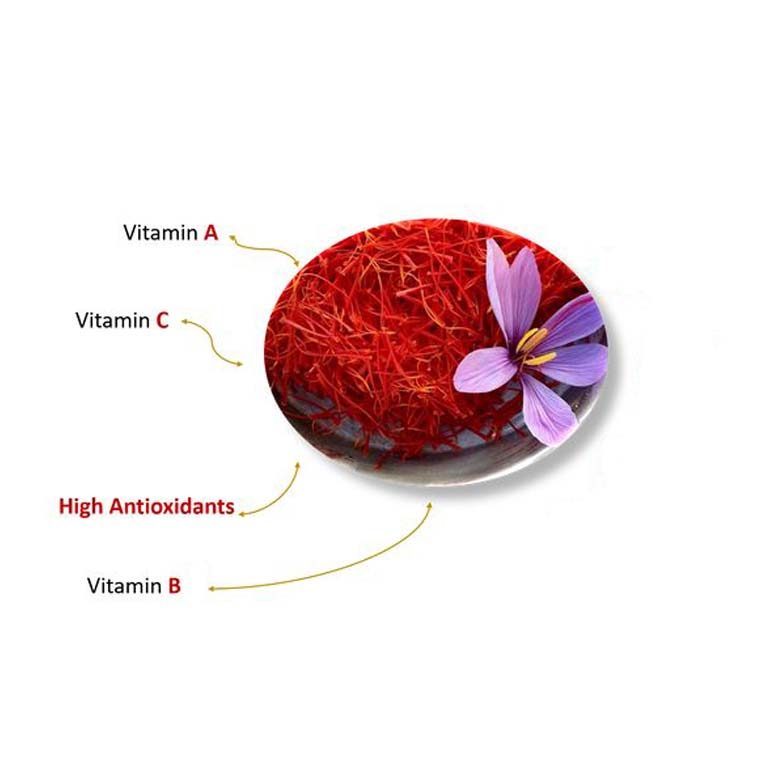Saffron is rich in valuable nutrients that have unique health benefits. When we examine the components of saffron, we find high amounts of vitamins and minerals that are the main reason for its beneficial effects. Particularly when discussing saffron’s impact on reducing depression, we refer to its nutritious compounds that can help improve mental well-being.
Vitamins in saffron include B vitamins (B2, B3, B6, B9), vitamin A, and vitamin C. Additionally, saffron contains many minerals that play an important role in the body’s health.
Importance of Adequate Vitamins and Minerals
Vitamins and minerals in saffron are classified as micronutrients, meaning the body requires them in small amounts. These micronutrients have various roles in the body, and many act as coenzymes in vital processes. A deficiency in these nutrients can lead to serious health issues.
Benefits of Saffron’s Vitamins
Some important benefits of saffron’s vitamins include:
- Facilitating metabolic reactions
- Supporting growth and development
- Stimulating hormone secretion
- Strengthening epithelial tissues and bones
- Improving nutrient absorption in the digestive system
- Playing a crucial role in blood formation
Key Vitamins in Saffron and Their Roles
Folate
Folate or folic acid is a vital vitamin for blood formation. Its deficiency can lead to anemia and symptoms such as fatigue, weakness, and sleep disturbances.
Niacin
Niacin or vitamin B3 plays a role in metabolism and energy production, and its deficiency can lead to diseases like pellagra.
Pyridoxine
Pyridoxine or vitamin B6 is effective in the body’s metabolic reactions, and its deficiency has serious consequences.
Riboflavin
Vitamin B2 plays an important role in metabolic reactions and overall health.
Vitamin A
Vitamin A or retinol is essential for eye health, and the amount present in saffron is safe and adequate.
Vitamin C
Vitamin C or ascorbic acid has antioxidant properties and helps boost the immune system, maintain skin health, and reduce the risk of diseases.
Minerals in Saffron
In addition to vitamins, saffron contains important minerals such as calcium, magnesium, zinc, iron, and selenium, each of which plays a key role in body health. For example, magnesium helps improve muscle and nerve function, while zinc supports immune function and wound healing.
Consuming Pure Saffron or Its Extract?
Although saffron extracts have their benefits, consuming pure saffron is preferred due to its freshness and the preservation of nutrients without oxidation. As recommended, it is better to use natural food sources rather than industrial extracts.
Ultimately, incorporating saffron into your diet allows you to enjoy its unique benefits and meet your body’s micronutrient needs.



